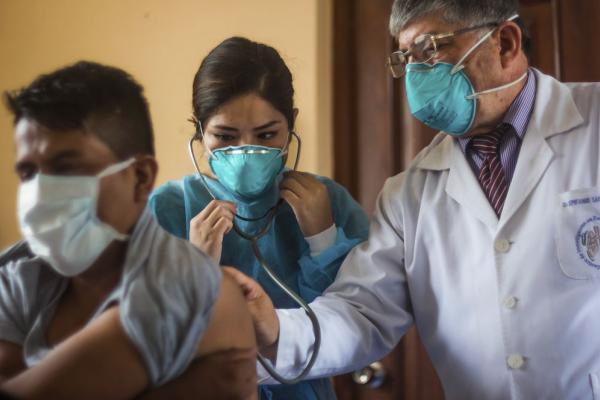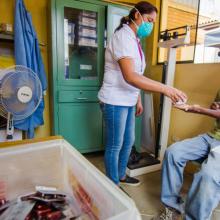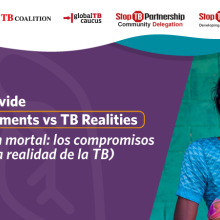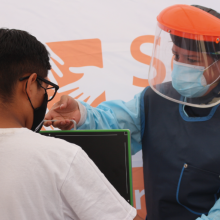This March 24 marks World Tuberculosis (TB) Day. A date that at Socios En Salud (SES) allows us to reaffirm our commitment to research and medical innovation in the discovery of solutions that contribute to putting an end to this disease, which is capable of producing around 52 thousand cases a year in Peru.
In the 21st century, it is incredible that one of the oldest infections of humanity does not have effective and sufficient tools to deal with it. In addition, there are several taboos about TB that must be fought through a series of actions that integrate fields such as health care, advocacy, among others.
One of these fronts is research. However, the outlook does not seem so optimistic for its development. Resources and global interest in TB research remain limited. For example, the only available vaccine - called BCG - is more than 100 years old and continues to be used in the absence of new alternatives.
In this context, for us, conducting TB research is a moral commitment, as well as one of the pillars of our work. Our mission is to bring modern science to the poorest and most disadvantaged communities in order to alleviate, in part, the suffering of families suffering from this infection.
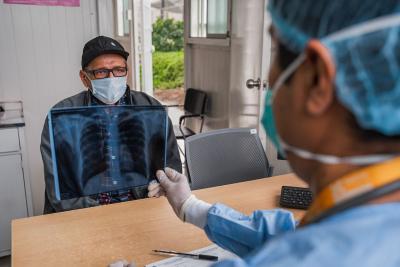
Desde la década de 1990, Socios En Salud viene promoviendo la investigación en tuberculosis (TB) para ponerle un freno a esta enfermedad que es capaz de producir alrededor de 52 mil casos al año en Perú.
“EndTB” and “EPI Study”, two high-impact studies
Currently, one of the most influential research against TB is the so-called “EndTB”. A consortium led by Partners In Health (PIH), Médecins Sans Frontières and Interactive Research and Development, which over the past seven years developed a five-arm clinical trial of schemes to reduce the duration of TB treatment.
Three of the five arms evaluated in this trial achieved effectiveness and shortened treatment for multidrug-resistant TB (MDR-TB): an all-oral, injection-free therapy lasting only nine months. The results of high cure rates (>90%) were presented at the latest edition of the Union World Conference on Lung Health, held in Paris (France), in October 2023.
A not minor fact is that almost 40% of participants included in this study were of Peruvian nationality. In other words, we already have national evidence for its implementation. Therefore, it is planned that the results of “EndTB” will serve as evidence for updating the national TB technical guidelines, as well as for the global guidelines on resistant TB.
In the latest edition of the World Conference on Lung Health, the results of “EndTB” were presented: an all-oral treatment that lasts only nine months for MDR-TB.
On the other hand, at Socios En Salud we are part of important global research networks on TB. Thus, between 2009 and 2017, we collaborated with colleagues at Harvard University to develop the “EPI Study,” one of the largest prospective TB investigations in the world. Over several years, with the collaboration of more than 100 health facilities of the Ministry of Health (MINSA), we followed more than 18,000 people (including TB patients and their household contacts), residing in more than 25 districts of Lima. Our purpose was to understand the dynamics of TB and MDR-TB transmission in the community.
Thanks to the “EPI Study” we managed to collect data and samples that continue to help us develop innovative studies that are able to identify new intervention strategies to address TB.
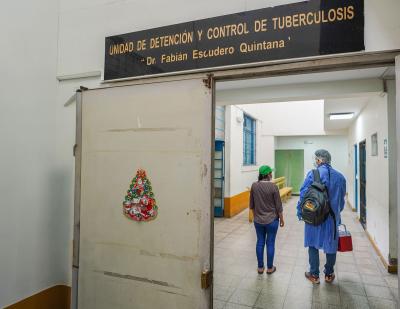
Gracias al Estudio EPI, hemos comprendido la dinámica de la transmisión de la TB y la TB-MDR en la comunidad (con el seguimiento de más de 18,000 personas).
A path of perseverance
It is very important that we all understand the importance of developing research in the field of health. As we have been able to observe above, these bring us wonderful opportunities to solve various health problems.
Certainly, greater resources and investments are needed for this task, as in the case of TB, but we also require improving the national regulatory framework to allow more Peruvian professionals to engage in research.
From Socios En Salud, we encourage Peruvian institutions and universities to foster this type of environment, because only in this way will we advance as a country and alleviate the suffering of people who have had the misfortune to come across diseases such as tuberculosis.
It is not an easy task, but we have already seen that it is possible. It is a path of perseverance and hope.
